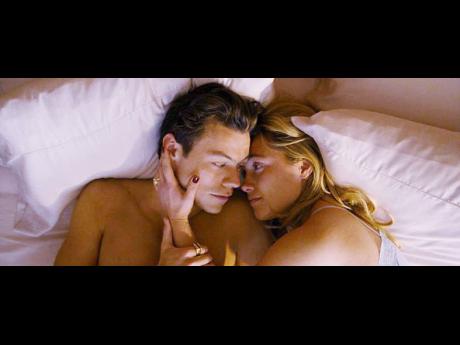‘Don’t Worry Darling’ – Far from perfection
Where should we begin when speaking about Don’t Worry Darling The behind-the-scenes drama of the movie presents one of the most scandalous campaigns in recent memory. There was allegedly adultery, verbal abuse, and public spitting, all of which have been spoken about ad nauseam. So much so that talking about the film itself feels almost trivial. How can any movie live up to such an eventual sequence of scandals? Eat your heart out, fiction fans; truly, the truth’s the stranger document.
Don’t Worry Darling is not about the chaos it took to make it, but, instead, is about Alice, played by Florence Pugh. Pugh plays a dutiful wife who is head over heels for her husband, Jack, in the idyllic town of Victory, a desert community in the 1950s which is as 1950s as you’d expect. The men go off to work with their suits and briefcases, and their wives mill about cleaning the house, preparing dinner, shopping for things they want but don’t need, and enjoying their lives at party after party.
For all intents and purposes, Don’t Worry Darling presents a paradise designed by Chris Pine’s Frank, the charismatic yet mysterious leader of the community. Each of the characters seem happy with their lot in life and buys into Frank’s proclamations of a bright and shining future. Yet something is off, and perfection is not all that it seems.
What’s beautiful about Don’t Worry Darling is how well those feelings are presented. When all is fine and dandy in Victory, the camera swirls around the characters with whimsy. There’s a sense that anything goes, with the painstakingly crafted ‘50s atmosphere providing a bright and vibrant backdrop. As Alice goes deeper down the rabbit hole, there’s a distinct shift in style. The film becomes darker and more focused. The descent into madness is articulated well, with Don’t Worry Darling achieving a sensation of paranoia.
It’s an impressive-looking film, but it works against itself. Towards the movie’s end, the mystery starts to wear thin and leads to an underwhelming climax that retroactively makes the film worse. Strange happenings that seemed senseless, due to the film’s foreboding plot, make even less sense when all is revealed. Much like Frank’s promise of things to come, Don’t Worry Darling feels like untapped potential, ultimately squandered for a disappointing finale.
If not for the performances of Pugh and Pine, the movie would be a waste. Their roles, along with the truly impressive artistic direction of the movie, deserve commendation, even if the ending leaves a bad taste in your mouth. A good twist leaves you pondering what came before it, with all the pieces clicking into place. With Don’t Worry Darling, one only wishes to get back the two hours wasted on it.
Rating: Catch It On Cable
Damian Levy is a film critic and podcaster for Damian Michael Movies.

